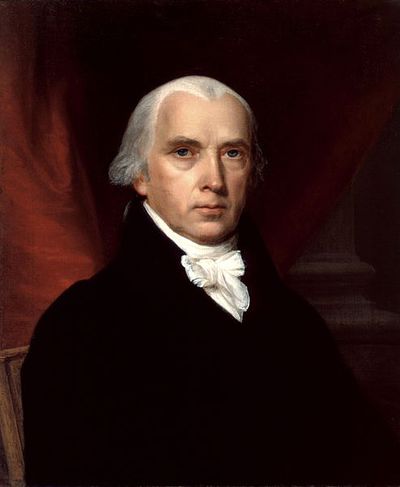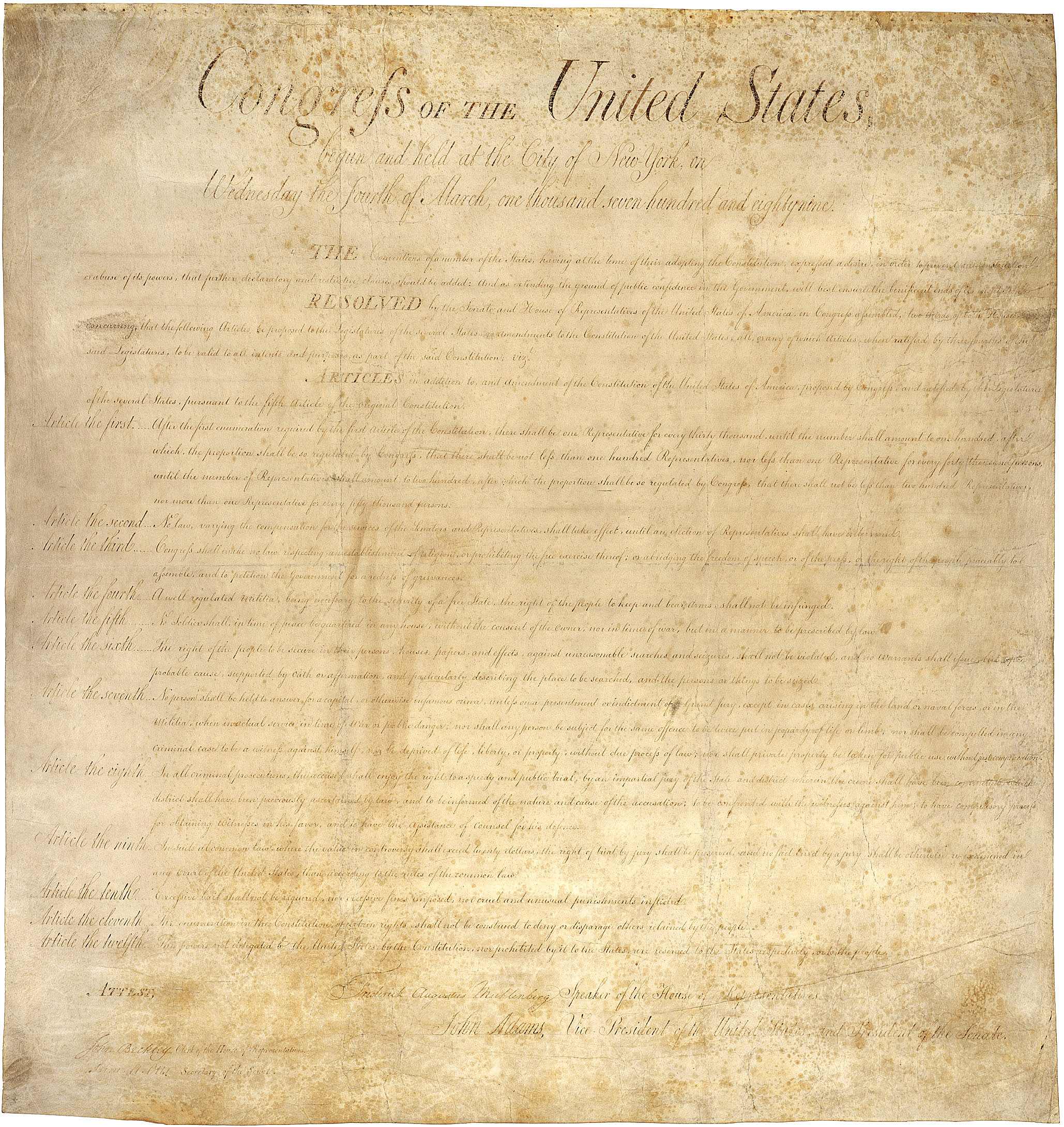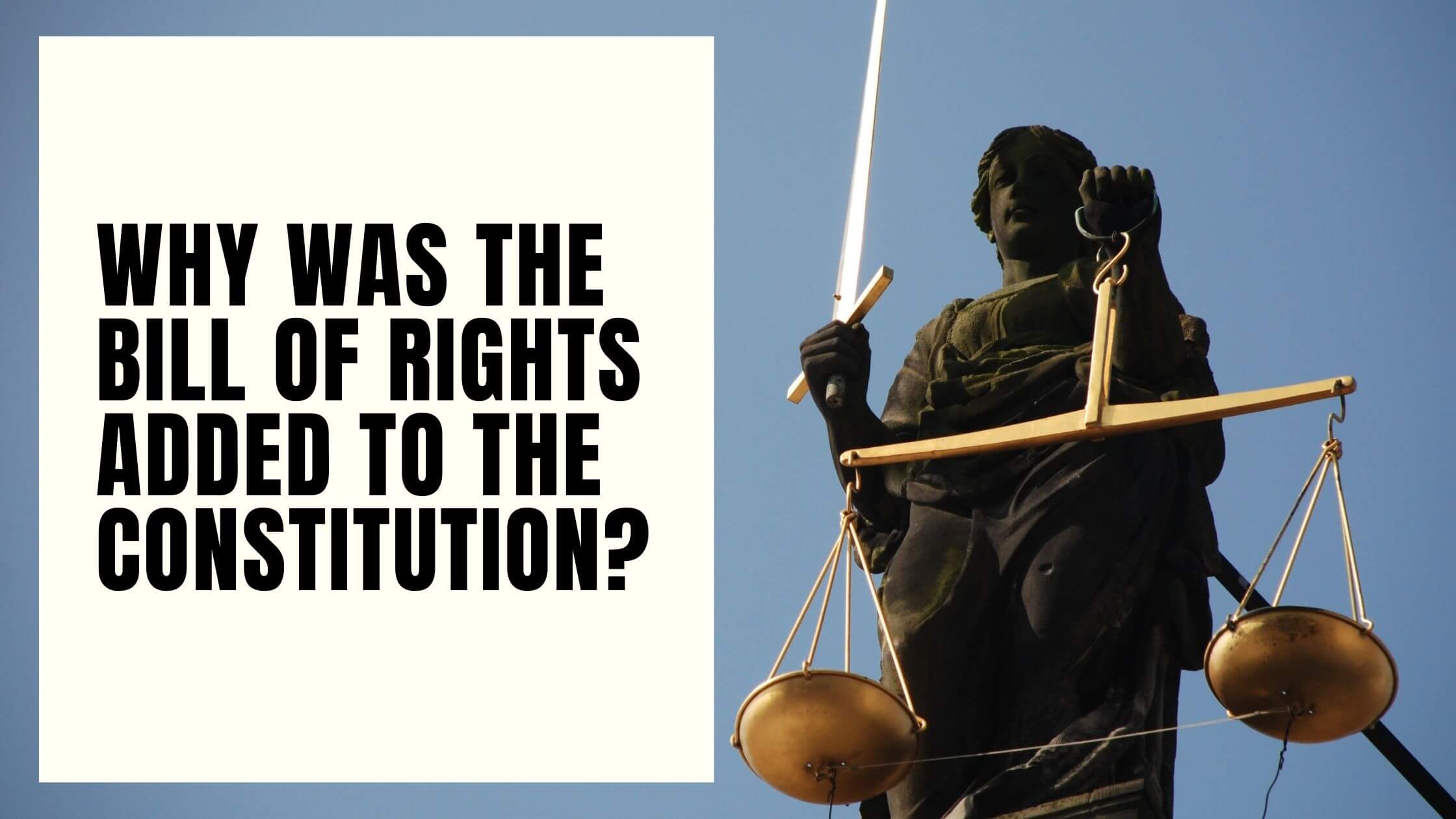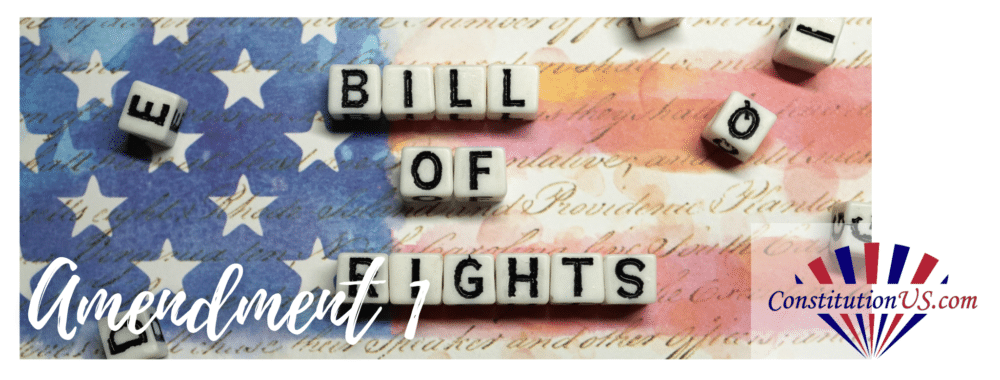Table of Contents
ToggleBasis For Adding Bill of Rights to the Constitution
When it was written, the United States Constitution had opponents. Those opponents, called Anti-Federalists, raised a number of objections to the Constitution in essays, debates, and conventions.
While enough states ultimately ratified the Constitution to become the supreme law of the land, founding father James Madison thought that some of the arguments against the Constitution had merits.
He carefully studied the Constitution’s flaws and crafted the Bill of Rights to cover some of the document’s weaknesses.
Objections From Anti-Federalists
The Constitution itself said it needed to be ratified by nine of the original 13 states to become law. However, the Articles of Confederation, the prior system of government, said that all 13 states had to agree to any change.
After the Constitution was written, State governments began to debate the merits of the new document.
One of the strongest arguments against the Constitution was the lack of a bill of rights. Elbridge Gerry wrote a letter to the Massachusetts Legislature titled “Hon. Mr. GERRY’S Objections to signing the National Constitution” that became popular among Anti-Federalists.
His primary argument was that the Constitution lacked a bill of rights. Others argued the same idea, including the pseudonymous writer Brutus.
The Massachusetts Compromise
The Constitution’s lack of certain defined rights became a sticking point for many state legislatures.
Massachusetts was the sixth state to ratify the Constitution, but it was the first to attach a stipulation.
After a bitter debate, the Massachusetts convention reached a compromise. It would ratify the Constitution, but only under the condition that it had the right to propose amendments.

These proposed amendments included adding a requirement for a grand jury indictment for capital crimes and reserving all powers not explicitly granted to the federal government to the states.
These ideas were added to the Constitution in the Bill of Rights.
Further Proposals
Both Virginia and New York suggested several amendments to the Constitution as part of their ratification debates. Virginia proposed a total of forty amendments, including 20 which defined individual rights, and 20 which defined states’ rights.
As more and more states began to ratify the Constitution, New York felt pressured to join the growing Union. Its constitutional convention drafted a letter, called the New York Circular Letter, that called for amendments proposed by “this or other States to be submitted…” for consideration immediately to rectify the Constitution’s flaws.
The Bill of Rights
Before the ratification debates, James Madison was an outspoken critic of the concept of the Bill of Rights. Nevertheless, he was convinced by the arguments of the state conventions and his peers in politics that adding a Bill of Rights to the Constitution would help form a unified, enduring nation.
Madison and his peers were afraid of the new Constitution being revised so quickly, reversing all of the work that had been put into the creation of the document.
He crafted a series of proposed amendments in 1789, addressing many of the points raised and amendments requested by state ratifying conventions.

The House of Representatives and the Senate modified Madison’s proposal before agreeing to propose the Bill of Rights. Madison remained involved during the process, ensuring that debate continued and that some version of his proposal survived both chambers.

Get Smarter on US News, History, and the Constitution
Join the thousands of fellow patriots who rely on our 5-minute newsletter to stay informed on the key events and trends that shaped our nation's past and continue to shape its present.
In 1791, 10 of his 12 articles approved by both houses of congress became amendments to the Constitution.
Political or Ideological?
It’s unclear to historians how much Madison believed in the ideas of the United States Bill of Rights and how much he felt that it was politically necessary.
His letters to friends, notes to himself, and speeches to politicians suggest that his views on the document shifted over time.
Regardless of how Madison felt, the faction that demanded a Bill of Rights had a very real ideological desire to enumerate individual rights. While Madison’s creation of the amendments might have been politically motivated, the desire of the average citizen to protect these basic rights was anything but.
Many Anti-Federalists were willing to live with the flaws of the Articles of Confederation if it meant waiting for a document with protections for individual and state rights.











